Directed by Joe DeBoer and Kyle McConaghy, Shudder’s ‘Dead Mail’ is a haunting descent into the shadows of the human psyche—a psychological thriller that doubles as a twisted character study. Anchored by a deeply unsettling narrative, the film gradually unravels the layers of a man both evil and tragically broken. But it’s in its final stretch where ‘Dead Mail’ truly sears itself into the viewer’s mind. The ending is not just unexpected—it’s profoundly jarring, leaving behind a haze of ambiguity that lingers long after the credits roll. While there may be a flicker of resolution, the film’s unrelenting pessimism doesn’t loosen its grip. Instead, it mutates into something more disorienting, plunging the audience into a fog of contemplation and unease! SPOILERS AHEAD.
Dead Mail Plot Synopsis
Set against the faded neon backdrop of the 1980s, ‘Dead Mail’ begins with a haunting image: a man in chains, bloodied and gasping, drags himself out of a suburban house and struggles to post a letter before collapsing. Another man runs after him, screaming in horror. The screen cuts to black. Title drops. At a sleepy postal facility, two women, Bess and Ann, sort through a batch of undeliverable letters known as “dead mail.” Among the pile, they discover a letter smeared with blood, reading: “Help me. Kidnapped. White Ranch House. County Rd 119. His name is…”—the message trails off before revealing the abductor’s name. Unsettled but unsure of its authenticity, they move on.
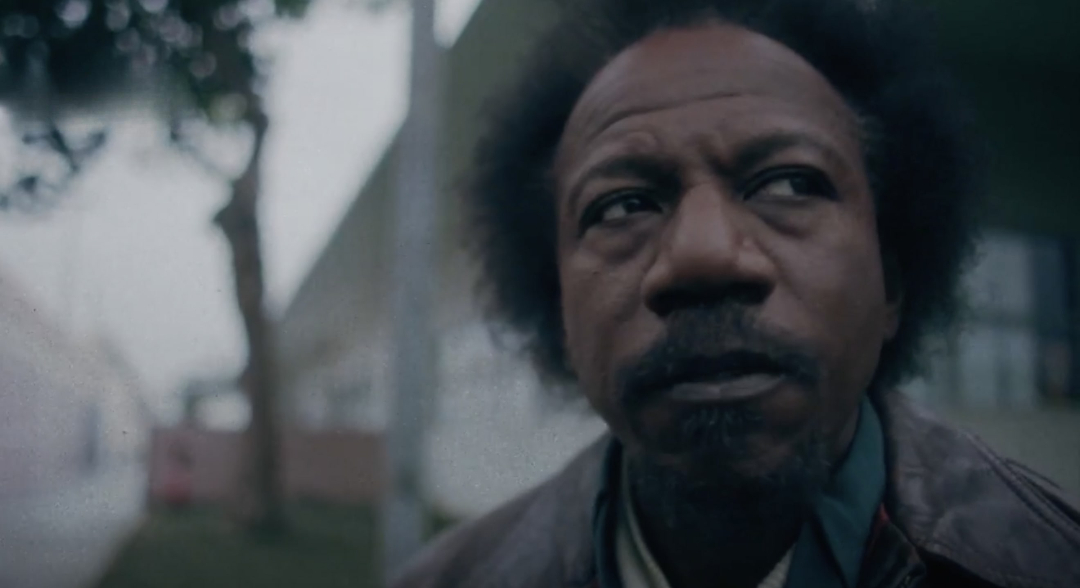
Now, Jasper Lawrence, a mild-mannered investigator of undeliverable mail, becomes involved after a diamond-engraved chain surfaces in the lost items. As he begins tracing ownership, he stumbles upon the bloodied letter. Something about it nags him. He has the letter tested and confirms it’s real blood. Disturbed, he asks a foreign liaison named Renèe to help track down the address. Jasper is unaware he’s being watched. Through a series of flashbacks, we learn that Trent Whittington is obsessed with Josh, a renowned synthesizer engineer.
In a twisted act of devotion, Trent builds a lavish studio and traps Josh inside, demanding they create their “masterpiece” together. However, what follows after this is completely sinister and unexpected—an unraveling of obsession, identity, and buried secrets. The film spirals into darker territory, constantly shifting the ground beneath the viewer. ‘Dead Mail’ is a slow-burn psychological thriller wrapped in 80s analog nostalgia, drenched in eerie synths and dread. The movie’s chilling final act stays with you long after the credits roll.
Dead Mail Ending: Why Does Trent Abduct Josh?
Trent’s abduction of Josh is a disturbing yet deeply tragic turning point in the film, revealing how obsession, emotional fragility, and loneliness can congeal into something monstrous. What begins as an eccentric but earnest collaboration between two synthesizer enthusiasts in the 1980s slowly warps into a one-sided fixation. Trent, an older man with reclusive tendencies and a deeply nostalgic attachment to analog tech, is drawn to Josh, not only for his talent and charisma but also for the sense of belonging and creative rejuvenation he brings. For Trent, Josh represents a second chance at connection, artistry, and even purpose.
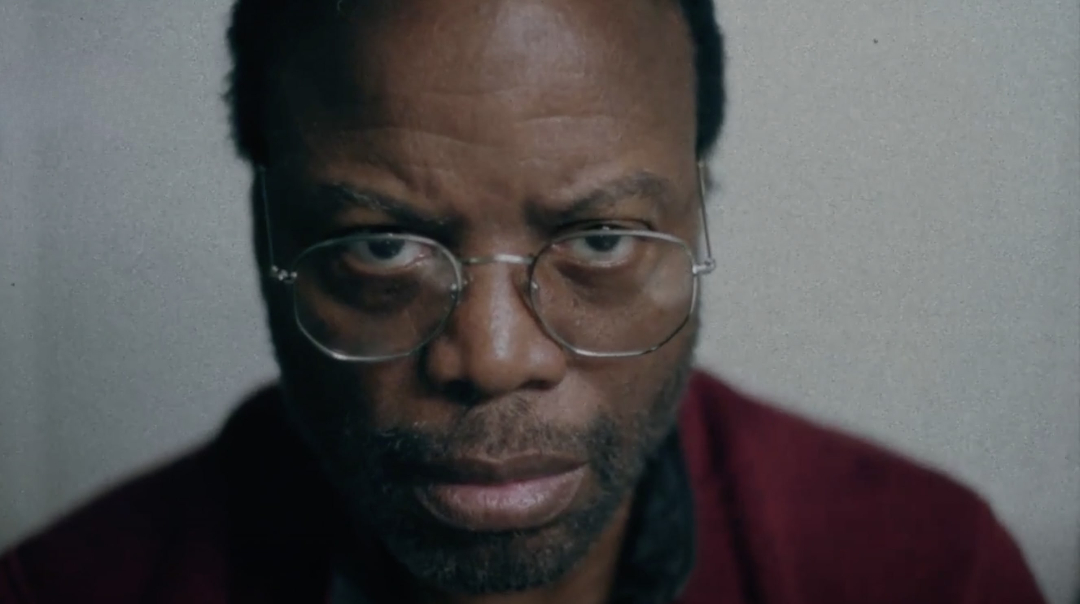
Initially, the bond between Trent and Josh seems innocent: late-night sessions soldering circuit boards, testing out hand-crafted synthesizer modules, and exchanging theories on sound frequencies. Trent even becomes Josh’s benefactor, offering rare components and access to his private collection of vintage electronics. But the generosity masks a needier impulse—a desire to tether Josh to himself, emotionally and physically. The power dynamic is always slightly imbalanced, with Trent taking on a paternal, almost proprietary role in their friendship. The cracks begin to show when Josh, eager to push his career forward, accepts a lucrative offer from a Japanese electronics company. For Trent, this isn’t just a professional departure—it’s abandonment.
Trent’s kidnapping of Josh is less a calculated act of violence and more a moment of emotional collapse. It’s an act born from panic and denial, a desperate attempt to freeze time and preserve what he believes they had. He locks his companion in his fortified basement studio, which until then had been a sanctuary for their creative collaboration. Now it becomes a twisted prison, lined with synthesizers and soundproof walls. The imagery here is stark and symbolic: a place once meant for innovation and harmony becomes a cage for control and silence. The film is careful not to paint Trent as a simple villain.
Instead, it delves into the psychology of a man so terrified of isolation that he is willing to destroy the very thing he loves in order to keep it close. Trent’s obsession is rooted not in malice, but in a profoundly distorted yearning for companionship. There are moments during Josh’s captivity where the film lingers on their conversations—ones that echo the early warmth of their relationship. These scenes complicate the traditional captor-victim narrative, suggesting that Trent genuinely believes he is preserving something beautiful. Of course, that belief is delusional and dangerous, but it’s tragically human nonetheless.
Why Does Trent Let Josh Go?
Trent’s decision to ultimately let Josh go is not framed as a redemptive arc. It is not an epiphany or an act of moral awakening. Instead, it is the byproduct of outside pressure and crumbling illusions. Josh, ever resourceful, manages to send a blood-stained plea for help, which reaches Jasper—a dead letter investigator with a personal knack for solving the unsolvable. His involvement adds a ticking-clock element to the narrative, with clues slowly unraveling Trent’s secrets. As law enforcement closes in and the walls of his delusion start to collapse, Trent begins to see the futility of his actions. He realizes he cannot reverse time, cannot rebuild the bond he’s already broken, and cannot escape the consequences forever.
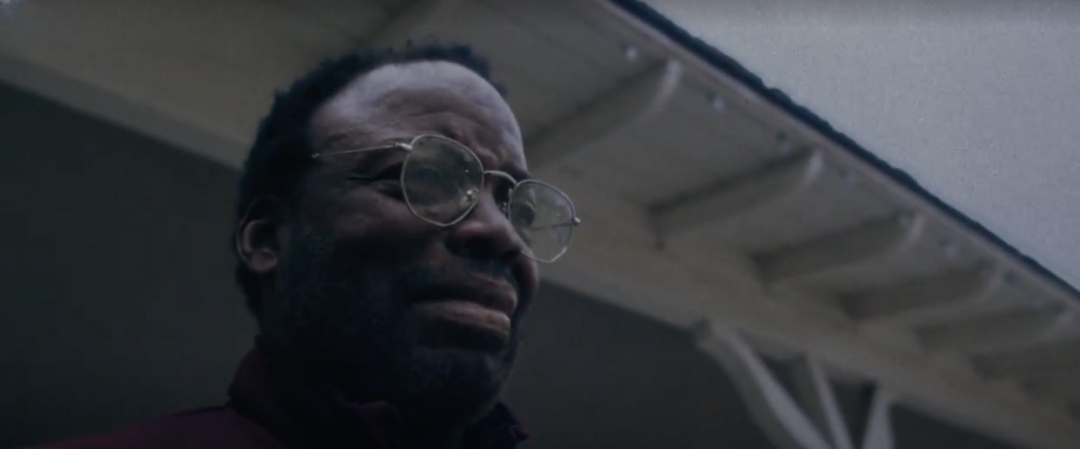
Rather than be caught, Trent flees—driving off into the night in what the film subtly suggests is a suicidal end. The act of letting Josh go, then, is not heroic. It is Trent’s last gesture of resignation. He is not choosing mercy; he is surrendering to inevitability. By the film’s close, the audience is left with a haunting duality: a young man traumatized but alive, and an older man consumed by the very emotions he could never fully articulate. The film doesn’t seek to excuse Trent’s actions, but it does contextualize them, revealing how obsession can masquerade as devotion, and how the fear of loneliness can lead to irrevocable damage. The ending lingers as both a cautionary tale and a character study, asking us to consider the terrifying consequences of unchecked longing.
Why Does Trent Kill Jasper?
The murder of Jasper by Trent marks one of the most disturbing and defining moments in ‘Dead Mail,’ solidifying the latter’s descent from a socially awkward eccentric into a man fully consumed by his obsession. The act is not born out of malice in the traditional sense, but rather out of desperation, fear, and the crumbling of his already fragile psyche. Jasper, a quiet and methodical dead letter investigator, becomes the story’s moral compass. He is introduced as someone who pieces together human stories from fragments—lost letters, unsent messages, and forgotten packages. When he receives Josh’s blood-stained plea for help, he doesn’t brush it off.

Instead, Jasper becomes emotionally invested in uncovering the truth. As he begins tracing the origins of the mysterious note, each step of his investigation brings him closer to the truth of Josh’s disappearance—and closer to Trent. On the other hand, the abductor has been holding on to the illusion that he can preserve the fantasy he’s created: a world where Josh never left, where their partnership is eternal, and where no one from the outside can interrupt it. But Jasper’s quiet, persistent digging directly threatens that fantasy. He is not just uncovering a crime; he’s dismantling the dream Trent has worked so hard to protect.
The killing itself is not premeditated. In keeping with Trent’s characterization, the act of violence is more panicked than calculated. When Jasper finally arrives at Trent’s home under the guise of a roommate in the housing community, tension simmers beneath the surface. Jasper notices inconsistencies—items out of place, locked doors that shouldn’t be, and a subtle tremor in Trent’s voice. When he gets too close, perhaps even discovering where Josh is being kept, Trent lashes out. It’s a moment driven by fear, the primal instinct of a man cornered and incapable of facing the consequences of his actions.
Ultimately, Trent kills Jasper not because he is evil, but because he is desperate. He is a man drowning in the consequences of his own obsession, and Jasper is the wave that threatens to pull him under. This killing is the clearest expression of Trent’s tragic arc—a man who could not cope with loss, who mistook possession for love, and who responded to the unraveling of his delusion not with reflection, but with irreparable violence. In the end, Jasper’s death is what accelerates Trent’s collapse.
Trent’s actions are no longer just about hiding Josh; it’s about hiding a body, covering up a murder, and evading law enforcement. The tragedy compounds, and his world spirals into a final act of escape, futility, and implied self-destruction. His killing of Jasper isn’t just a plot twist; it’s the moment where Trent becomes irredeemable, lost in the very obsession he once mistook for devotion.
How Does Renée Find Trent?
Renée’s discovery of Trent concludes a detailed, methodical investigation that begins with a crucial clue: Josh’s blood-stained plea for help. Jasper first sees the note, which initially lands at the dead letter office. Sensing the urgency of the message, Jasper sets out to trace its origin, uncovering key details before his tragic death at Trent’s hands. Before dying, he passes on vital information to Renée, including an address linked to the note’s sender. Despite his shock at Jasper’s death, Renée takes up the investigation, determined to continue what he started.
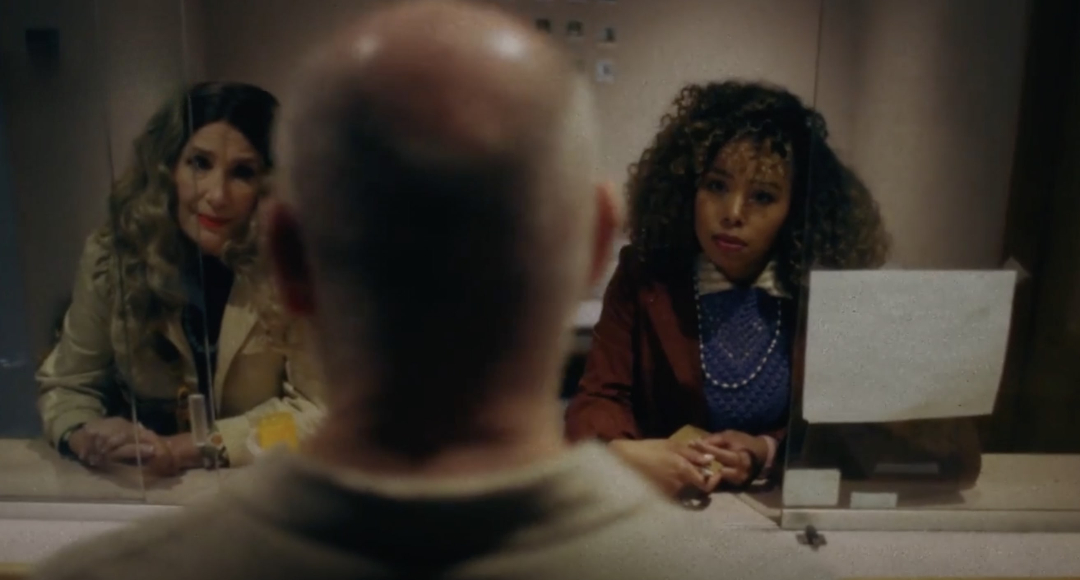
Renée dives into the mystery, sifting through the records to track down the person behind the plea for help. He doesn’t tackle the task alone. He enlists the help of Bess and Ann, two diligent postal workers. Together, they analyze the addresses, names, and phone numbers associated with the note. Their collective effort narrows down the possibilities, leading them to four potential suspects connected to the addresses listed in the letter. Trent, one of the four names that emerge, stands out as a key figure. The investigative process—grounded in routine postal work and collaboration—guides Renée toward identifying him as the person behind the kidnapping.
This discovery is not driven by sudden breakthroughs, but by steady persistence and teamwork. Renée and his team methodically follow the clues, piece by piece, trusting that the answers will eventually surface. The process is grounded in a quiet dedication to uncovering the truth, showcasing how ordinary people, through careful work, can solve extraordinary mysteries. By the time Renée identifies Trent, the investigation has shifted from a mysterious plea to a race against time to stop a dangerous man. The careful unraveling of Trent’s identity becomes a testament to the power of persistence and human connection in solving complex problems.
What Will Happen to Trent?
‘Dead Mail’ ends on a somber, ambiguous note, with Trent sitting alone, listening to a piece of music—a track that plays on the radio while eating, he has tears in his eyes and a disappointing face as he listens to the music Josh had made before their partnership fell apart. This closing image offers no definitive punishment, escape, or redemption, and instead invites interpretation through psychological, thematic, and symbolic lenses. Trent’s ultimate fate, while not explicitly shown, appears sealed through implication. The music he listens to in the final scene is not triumphant—it’s mournful, haunted by what it represents: the last creation of a man he idolized, manipulated, and imprisoned.
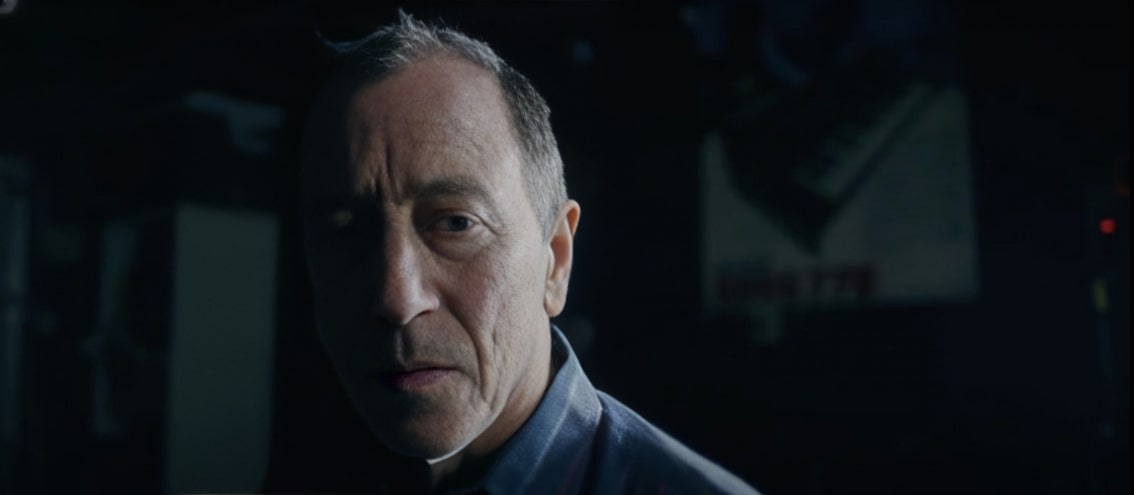
Trent, a man who orchestrated a crime out of obsession, now sits in the ruins of his delusion, not as a triumphant captor but as a failed visionary, undone by his own need to control what he loves. Thematically, the ending subverts the expectations of justice typically seen in thriller narratives. Trent is not apprehended on screen. No police sirens blare. But his stillness, his silence, and his solitude are louder than any courtroom judgment. He’s already spiritually defeated. Josh has escaped. The music—the so-called masterpiece—has been made not in partnership, but under coercion, its existence now forever tied to Trent’s guilt.
The very sound Trent once considered the ultimate symbol of connection has become a soundtrack to his downfall. Psychologically, he is a man whose obsession with Josh—possibly romantic, certainly possessive—has hollowed out his sense of identity. His actions are not those of a cold-blooded killer but of a man driven to madness by rejection and creative jealousy. The final act of poisoning Josh signals Trent’s last desperate attempt at asserting control. Yet when Bess and Ann intervene, and Josh finally walks free, Trent makes no further move. He doesn’t resist. Instead, he retreats inward, defeated.
It is telling that Trent does not chase Josh, does not attack Ann in the final scene, and doesn’t flee. His violence is spent. His fantasy has collapsed. What remains is a man haunted by the echoes of a ruined obsession, sitting alone with the sound he thought would immortalize their partnership. In this regard, the music is both his victory and his curse. He got what he wanted—Josh’s masterpiece—but at the cost of everything else. In that moment, we don’t see a fugitive plotting escape, but a man already imprisoned by regret, loneliness, and the realization that the very thing he created came from cruelty.
Legally, it’s likely that Bess and Ann, having discovered Josh and identified Trent, would alert the authorities. Trent’s capture seems inevitable. However, narratively, ‘Dead Mail’ is less concerned with legal consequences than with its characters’ emotional and psychological reckoning. That’s why the final shot isn’t a chase, an arrest, or a courtroom confrontation. It’s a man listening to music that now only reminds him of what he destroyed.
Read More: Shadow of God Ending Explained


